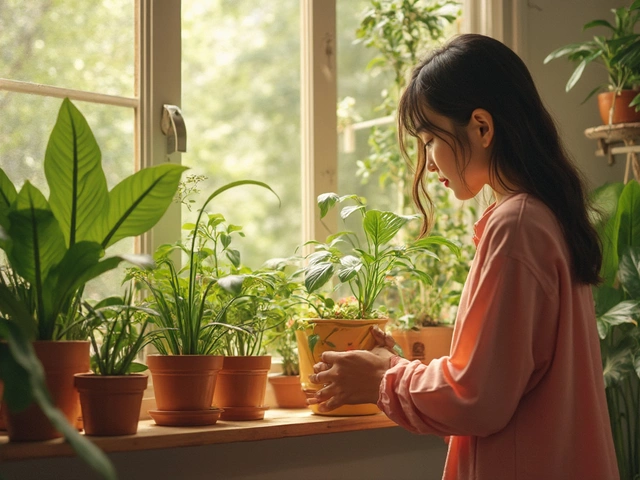Amend Soil: Simple Steps to Boost Your Garden’s Health
Good soil is the foundation of any thriving garden. If your beds feel heavy, drain slowly, or produce weak plants, it’s time to amend the soil. Amending means adding materials that improve texture, nutrient content, and water management. Below you’ll find easy, affordable ways to turn problematic soil into a plant‑friendly medium.
Why Soil Needs Amending
Most Indian garden soils are either too clayey or too sandy. Clay holds water but can become compacted, squeezing air out of roots. Sandy soil drains fast but doesn’t keep nutrients. Both extremes stress plants, leading to stunted growth and low yields. Adding organic matter, sand, or gypsum balances these issues, creating a looser structure that lets roots breathe and water move at the right rate.
Organic matter also feeds the soil microbes that break down nutrients. Healthy microbes turn compost, leaf litter, and manure into forms plants can absorb. Over time, this natural process builds a richer, more resilient soil profile.
Easy Ways to Amend Your Soil
1. Compost – The gold standard for soil amendment. Spread a 2–3 inch layer of well‑rotted compost over the bed and work it into the top 6–8 inches. Compost adds nutrients, improves water retention, and encourages beneficial microbes.
2. Well‑rotted manure – Cow, horse, or poultry manure supplies nitrogen and phosphorus. Use it in moderation; too much can burn young seedlings. Mix 1 part manure with 2 parts garden soil before planting.
3. Coconut coir or peat moss – Great for sandy soils that lose water quickly. Add a 1‑inch layer and incorporate it into the planting zone. These fibers hold moisture while keeping the soil light.
4. Sand – If heavy clay is the problem, coarse sand (not beach sand) can improve drainage. Add sand in equal parts to the existing soil and turn it thoroughly to avoid creating a cement‑like mix.
5. Gypsum – Works especially well on alkaline or calcium‑rich clays. Sprinkle 1‑2 cups per square meter and mix in. Gypsum loosens soil without changing pH, letting roots spread more easily.
When you amend, always water the soil after mixing. Moisture helps the added material settle and start interacting with native microbes. For new beds, wait a week before planting to let the amendment integrate fully.
Remember, amending isn’t a one‑time job. Soil health declines over time, especially after heavy cropping or prolonged drought. Test your soil every season and re‑apply compost or manure as needed. A quick visual check—dig a small hole and feel the texture—can tell you if the soil still feels compacted or overly loose.
By regularly amending soil, you give your garden a solid, nutrient‑rich platform. Plants will grow stronger, produce better yields, and need less water. Start with a modest amount of compost this week, watch the difference, and adjust as your garden evolves.
How to Amend Hard Garden Soil for Better Plant Growth
Hard garden soil won't support healthy plants - but you can fix it. Learn how to amend compacted, clay-heavy soil with compost, cover crops, and smart techniques that work without expensive tools or chemicals.
Cheapest Way to Amend Garden Soil: Simple Fixes That Actually Work
Looking to make your garden soil better without spending a fortune? This article cuts through the fluff and digs into only the most effective, cheapest methods to boost your soil's health. You'll get tricks that use stuff you probably already have at home or can snag for free. Whether your soil is too sandy or packed like clay, these fixes will help your plants thrive. Bonus: most tips don't even require heavy lifting.
About
Soil Improvement
Latest Posts


Root Rot Signs: Spotting Trouble in Your Indoor Plants
By Alden Thorne Feb 9, 2025

McGregor Garden Tools Manufacturer - Who Makes Them & Why They Top the Garden Tool List
By Alden Thorne Oct 26, 2025

Most Beautiful Flower in the World: Types, Facts, and Gardening Tips
By Alden Thorne Jul 31, 2025


